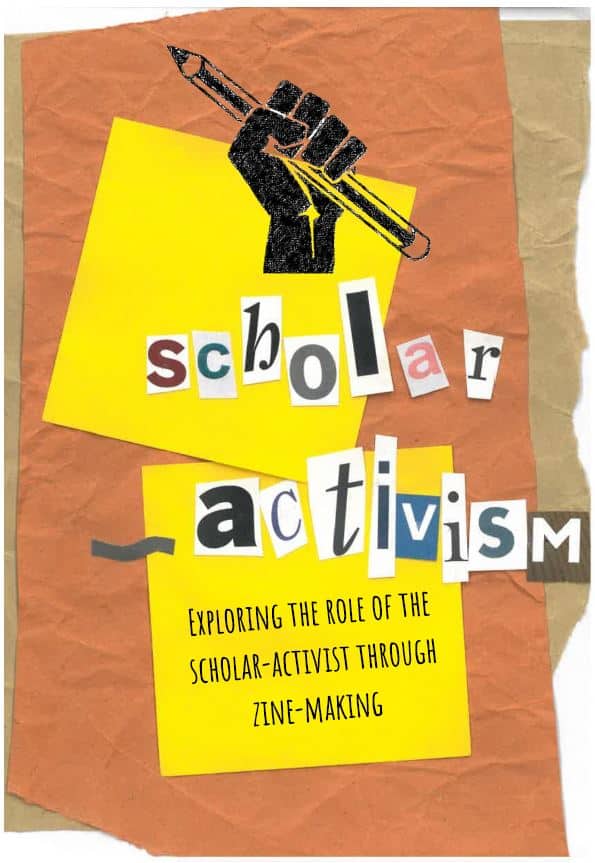
Hot off the digital press we present you the SUSPLACE Scholar-Activism Zine! – Created through the collective work of participants in the Scholar-Activism Zine-making workshop at the Final Event in May and then compiled by myself and Poppy Nicol.
Zine-making is both process and product. The act of coming together to reflect on our roles as scholar-activists and discuss these before turning our ideas onto paper through drawing, writing, doodling and collage was really important. We also hope that the final product, the compiled zine, will help others to reflect on their own practices well as spark up new and interesting conversations around the role of research institutions and researchers in relation to political struggle and communities.
Scholar-activists see research and political engagement as mutually enriching. Their activism is directly connected with research or it is acknowledged as an integral part of their identity. Rather than separating these two sides of themselves by being politically engaged in their spare time and creating a false separation between activism and research by ignoring or even suppressing or hiding their politics, they embrace and critically reflect on their politics and activism within their research. Scholar-activists reject the positivist position that researchers are, and should be, objective observers. Instead they recognise that all research, even that which claims to be objective and neutral, is grounded in a political standpoint and it is therefore important to explore the researcher’s positionality as part of ensuring research integrity.
Scholar-activism has been steadily gaining legitimacy in recent years with books, journal issues and conferences on the topic. However, there are still many barriers within research institutions, and it is often a struggle to stand by the ethics of scholar-activism within a system where this is not valued. It is also often a deeply emotional and exhausting practice which may involve a lot of internal conflict and tensions between the roles of scholar and activist or community member that a researcher inhabits.
Through a visioning exercise, group discussion and then creative zine-making, we asked participants of the workshop to consider both the challenges and the joys of this dual role as well as the concept as a whole. Participants were guided by the three following questions and it is these that structure the zine itself:
[Joy] Have you had a specific experience in your academic or activist work which you feel encapsulated Scholar-Activism?
[Challenge] Which barriers, institutional or otherwise, have you encountered in trying to embody this dual position?
[Theory/Meta] Do you think scholar-activism is a useful or even realisable concept in the context of academia?
We invite others to hold such workshops and creative gatherings and share their findings with us. Please feel free to share the zine widely and contact us if you have any questions about the workshop and zine-making as a creative and disruptive methodology.
Alice Taherzadeh (TaherzadehA@cardiff.ac.uk)
Poppy Nicol (NicolP@cardiff.ac.uk)
